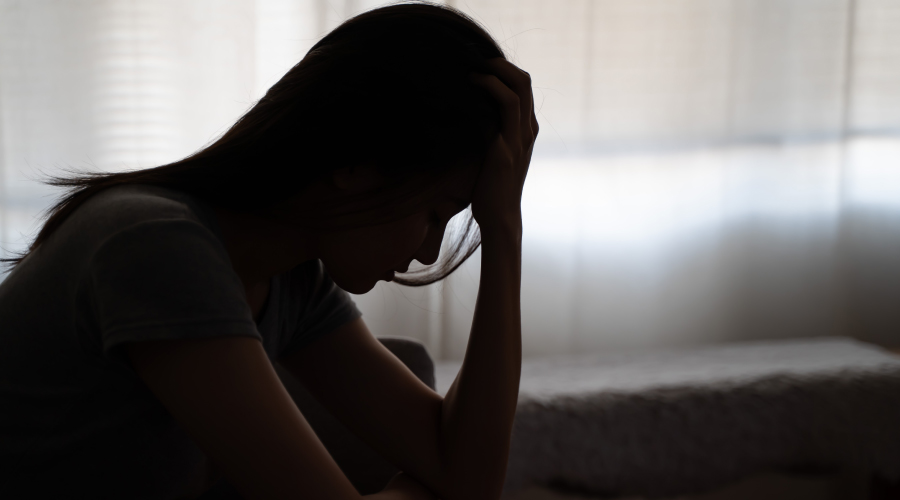

If you feel light headed and dizzy, and feel you are at risk of falling or collapsing whenever you are getting up rapidly from either a lying or sitting position, then there are certain factors which you should keep in your mind. Let us know about light headed meaning, the causes, symptoms, evaluation and line of treatment, in detail, in this article.
Light Headed Meaning
Lightheadedness, fainting, dizziness, disorientation, or blurred vision occur within seconds to a few minutes of standing (especially after lying in bed or sitting for an extended period of time) and resolve quickly when the individual rests down — a condition known as orthostatic or postural hypotension. This happens in some people, particularly older individuals, who experience a significant blood pressure dips when they sit or rise up.
This occurs because when you stand up, blood rushes into your legs for a moment and it takes the body a moment to adjust by pushing blood out of your legs’ large veins and powering up your heart. Some individuals might even stumble, faint, or experience a short seizure. Lightheadedness symptoms are generally more prevalent and severe after persons exercise, drink alcohol and/or eat a large meal (digestion diverts blood flow and may lower your blood pressure), or are dehydrated.
Some younger people have similar symptoms when they stand, but their blood pressure does not drop. Postural orthostatic tachycardia syndrome (POTS) is a disorder in which their heart rate (tachycardia) rises above normal when they stand. It is still unclear why certain individuals feel dizzy while having normal blood pressure.
Is It Something to Worry About?
When understanding light headed meaning, you must know that up to 20% of adults over 65 suffer from orthostatic hypotension. If the lightheaded feeling lasts less than 15 seconds, simply keep hydrated. However, if the lightheadedness symptoms occur frequently or the episodes do not resolve fast, you may fall and black out. Then, consult your doctor.
In other cases, you can visit a doctor if you feel dizziness when standing and:
- you are worried about your dizziness or vertigo
- it does not go away keeps coming back
- it becomes difficult for you to hear or speak
- there us difficulty in walking or balancing
- you are experiencing ringing or other sounds in your ears (tinnitus)
- you are having double or blurred vision or other kind of changes in your eyesight
- you are feeling numbness or weakness in your face, arms or legs
- there is chest pain or discomfort
- you are experiencing symptoms like changes to your pulse, headaches, collapsing or fainting, sickness, etc.
- there is blood in stool or the stool is black and tarry
Cause of Light Headedness While Standing Up
Hope you would now have understood light headed meaning and when to see a specialist; let’s learn the possible cause of light headedness. Light headed and dizzy feeling when standing up occurs as a result of abnormal blood pressure regulation, which is more prevalent as age-related changes in the body.
Normally, when people stand, gravity causes blood to pool in the veins of the legs and trunk. This pooling lowers the blood pressure and the amount of blood the heart pumps to the brain. Low blood flow to the brain causes dizziness and other symptoms. To compensate, the nervous system quickly increases the heart rate and constricts blood vessels, which rapidly returns blood pressure to normal before symptoms can develop. The part of the nervous system responsible for this compensation is the autonomic nervous system.
Causes of dizziness when standing differ depending on whether symptoms are in the initial phase or have been present for some time.
Here is a list of the causes:
- Malfunction of the autonomic nervous system due to disorders or medications
- Decreased ability of the heart to pump blood
- Decreased blood volume (hypovolemia) – as a result of dehydration or blood loss
- Impairment in the hormonal responses — such as an underactive adrenal gland (due to adrenal insufficiency)
- Prolonged bed rest
Evaluation and Treatment
So, if you are experiencing dizziness when standing and visit the doctor, he/she will firstly evaluate your symptoms and medical history and then opt for a physical examination. If the cause of the dizziness is suggested then tests may be needed to be done.
Evaluation questions by the doctor, if you visit for light headed and dizzy feeling:
- How long have you been experiencing dizziness?
- Whether you have fainted or collapsed during an episode of dizziness?
- Whether you have experienced conditions that are responsible for causing dizziness (such as bed rest or fluid loss)?
- Whether you are suffering from any disorder (such as Parkinson disease, diabetes, or cancer)?
- Whether you are consuming any particular medication (such as, an antihypertensive) that may lead to dizziness?
Steps of physical examination:
- The medical professional may start with evaluation of blood pressure and heart rate.
- Then he/she may proceed with digital rectal examination to check if you are experiencing any bleeding in the digestive tract.
- Afterwards, a neurologic examination is carried out to test strength, reflexes, balance, sensation, and gait.
Tests recommended:
- Unless the cause is obvious (for example, bed rest), testing is usually needed. The doctor usually does electrocardiography (ECG), a complete blood count, and other blood tests (for example, measuring levels of electrolytes). Other tests are done based on what doctors find during the examination, especially if the person’s symptoms suggest a heart or nerve problem.
- Tilt table testing — which is a common test of autonomic function.
Treatment for dizziness when standing (it includes lifestyle changes and medications):
- Your doctor may ask you to have adequate fluids, avoid or limit alcohol, and exercise regularly when feasible.
- Your doctor may suggest you sleep with the head of the bed raised, which may help relieve symptoms.
- For some individuals, doctors may recommend increasing salt intake as it may increase water retention and lessen symptoms (not recommended for heart patients).
- Your medical professional may recommend certain nonsteroidal anti-inflammatory drugs (NSAIDs) as well.
Final Words
Postural hypotension frequently causes lightheadedness. After delving deep into light headed meaning, you now understand that as we become older, the instances become more. It can cause serious falls and should not be overlooked. If this happens to you on a frequent basis, you should see your doctor to explain the circumstances and go over all of the medications you are taking. Also, if you have lightheadedness, sit down immediately and gradually get up after a minute or two to avoid a collapse.




